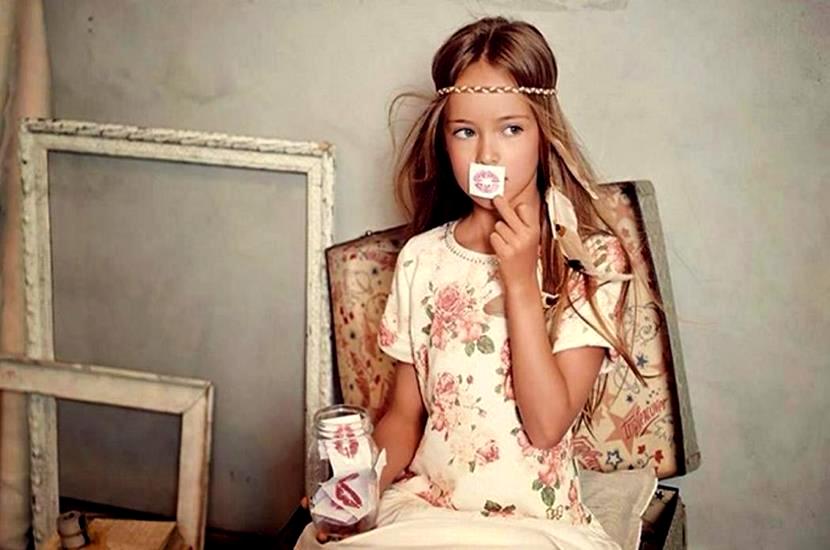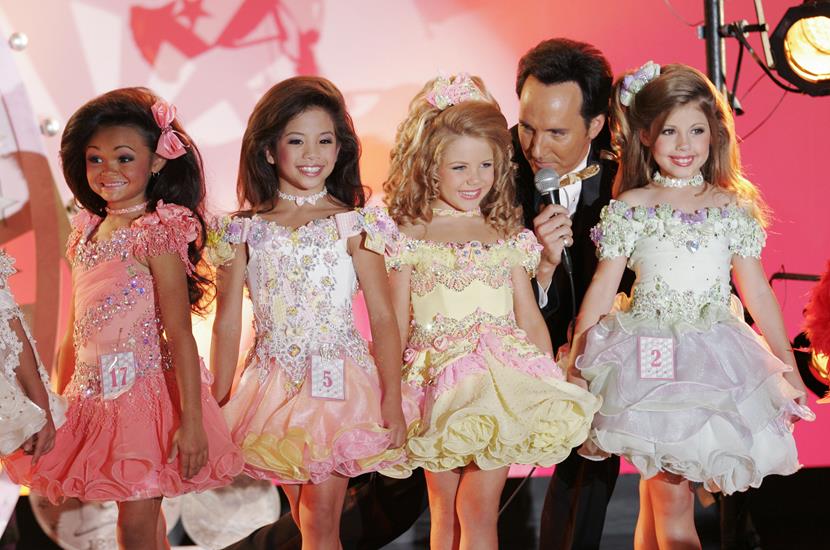
Childhood hypersexualization is a real horror movie. Today's girls and boys have almost unlimited access to those windows that are social networks or YouTube, where their brains, hungry for emotions, access information where they can develop their identity. Almost without knowing how they take an evolutionary leap to that stark artificiality where not only stages are advanced, but also the foundations of the Self esteem and the authentic self-concept.
Every mom will remember that time when we woke up to puberty eager to try a lipstick, to go one step further and leave our children's wardrobe for something more daring, more cheeky. They are normal processes, normative awakenings that have nothing to do with many girls today. Believe it or not more than princesses, many girls yearn to be queens, queens of flabby and harmful beauty that ends many times in which we have to treat 9-year-olds with anorexia or bulimia. We invite you to reflect on it.
Hypersexualization sells
Hypersexualization is profitable for large companies and most clothing and cosmetic brands know this. At present, we have for example the well-known case of Kristina Pímenova, the «Supposedly most beautiful girl in the world», that with almost two million followers on Instagram, clothing brands raffle it while her skillful mother manages that early entry into the world of adults, of a young girl of just over 12 years old who lives her days under the photos and the gaze public that sees her grow.

Nor can we forget the children's beauty pageants so popular in the United States and especially in Latin America. Here the perversion of the media goes one step further to create totally delusional and worrying situations. Girls are transformed into miniature women, completely hypersexualized to compete with each other before a select audience.
The circus phenomenon is paid mainly by families who guide these girls in the value that beauty is power, that beauty is status. In countries like Venezuela, these acts are very popular, and there are known cases of girls who have already undergone cosmetic operations to correct details, to "fill in" nuances that time, by itself, would have already shaped in their time. and in due course.
Precocity and the need to "burn through stages"
Last year, a well-known clothing chain launched a children's swimsuit where the bra part included a subtle padding so that 6 or 7-year-old girls appear much older. Fortunately, the reaction of social networks ended with the recall of these clothing items.
All this shows us that fortunately the vast majority are sensitive to this type of realities where a series of ideas is evident:
- At present we are living a kind de social pressure to accelerate processes, to burn stages. We want our children to learn to walk soon, they we remove the diaper As soon as possible, we go from soft to solid food quickly, and we also want children to learn to read and write at 5 years of age.
- Faced with this acceleration ... How can we be surprised that 10-year-old girls go to school with makeup or that our 11-year-old boys bring their girlfriends home to go to their room?
- Burning stages does not result in greater maturity, not a better personal identity or good self-esteem. What actually causes is an "involution" a precipitation in free fall that often brings unhappiness.

- Girls and boys who have received these messages of hypersexualization from a very early age through the media or from their own families, they build their self-esteem based on a unique dimension: their body and physical appearance.
- Appearance is synonymous with power and a way of validating themselves as "people." If at first they were looking for reinforcement in their own family, as they get older they will look for it in the opposite sex.
- This is how I know develop fragile and vulnerable personality patterns, people who have their own enemies in themselves, always striving for perfection, being admired and desired in order to reaffirm themselves as people. It's really sad.
Be sensitive and intuitive to a world that hypersexualizes
The world hypersexualizes. Television does it, the toy industries do it by giving us dolls with perfect curves and long blonde hair, and Disney does it, we only have to remember its two best "products" such as Miley Cyrus and Selena Gomez. All girls wanted to be like them, now, we are all witnesses of that evolution where their hypersexualization has brought them success, fame and power.
Según un report of the American Psychological Association working group lGirls and boys exposed to sexual messages typical of this media culture are more likely to develop not only low self-esteem, but also depression and eating disorders.

We need to be intuitive and sensitive people to these kinds of realities. Our daughters and sons imitate everything they see and internalize everything that is part of their closest surroundings.
- To avoid hypersexualization, it is useless to remove their home Wi-Fi password or stop renewing their mobile contract. Education on sexualization begins in early childhood, through toys, books, cartoons. And of ourselves acting as references.
- It is not at all about "forbidding them to play with barbies." Offer them more alternatives where the classic nuances of sex and gender do not exist.
- Educate in equality, in opening minds, in curiosity, do not let them get interested early in areas that are not appropriate for their age. They will have time for everything, but in due course, not at 6 years old.
Never tell a girl this age that she is gorgeous just because she has put on your lipstick or mascara. Don't ask a 7-year-old how many girlfriends he has at school.